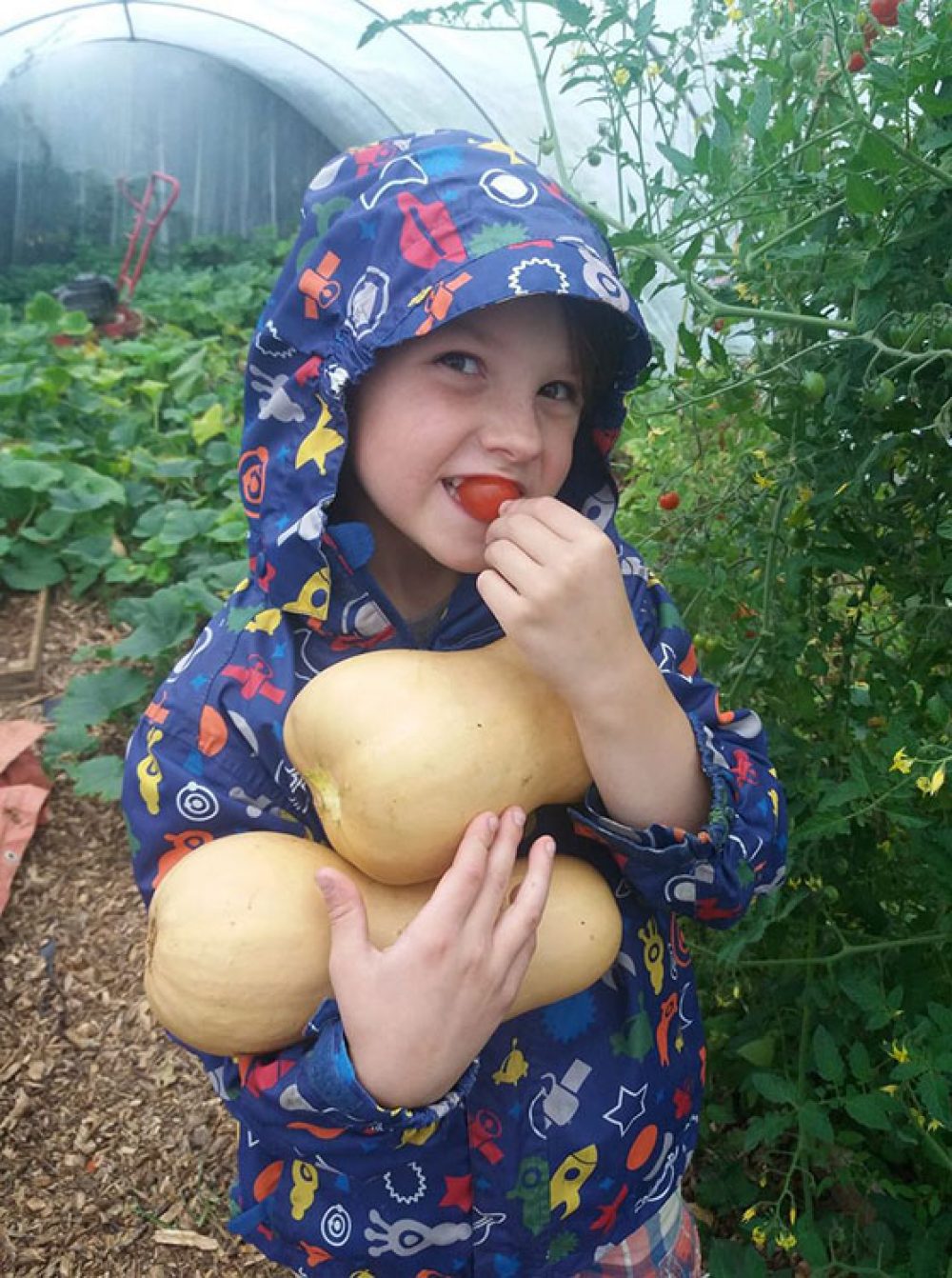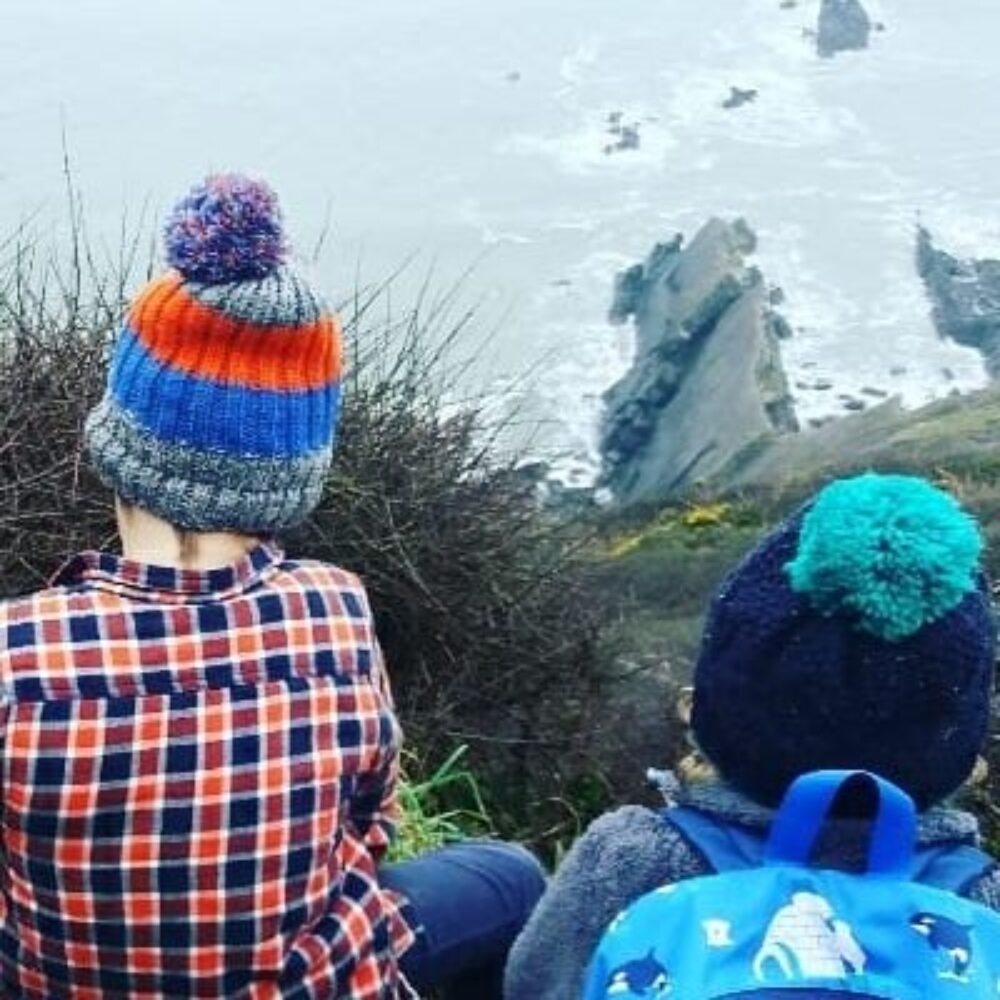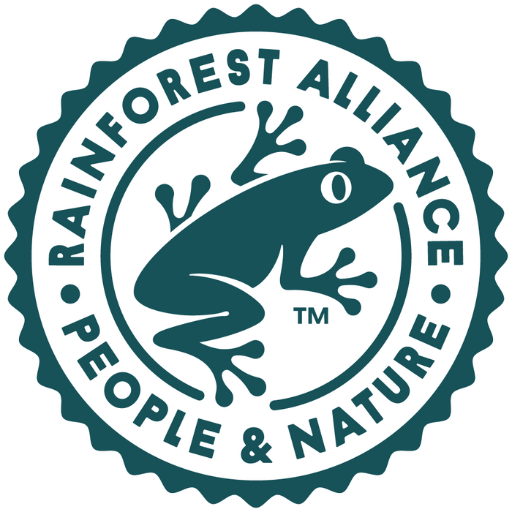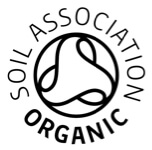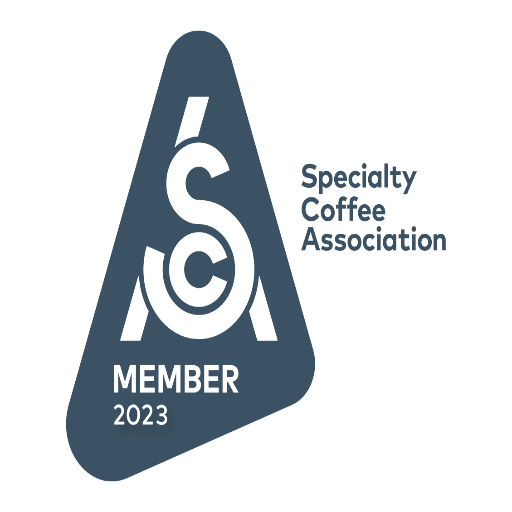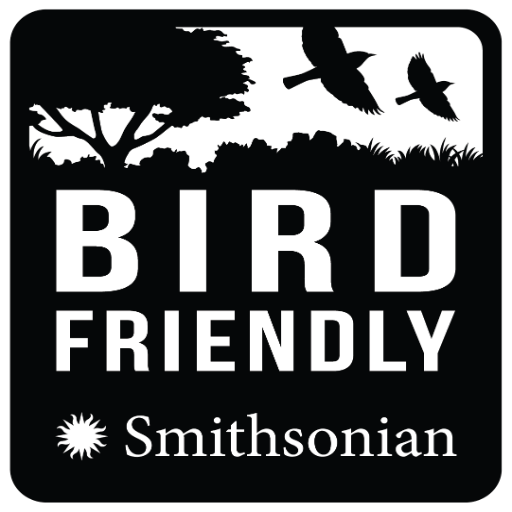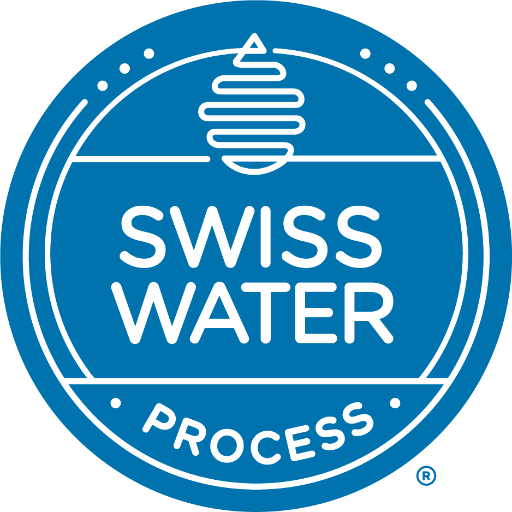Tell us a bit about you and your roastery
Our small roastery is based in Hersham, a small hamlet near Bude, Cornwall. It’s a family business with everyone pitching in; Paul is the roaster, and I concentrate on the green coffee side. We have six children who are all homeschooled or have been. Our eldest son, who is 14, is roasting for us one day a week and the rest pack, do marketing, deliveries and barista training. I suppose we are like a little commune. We bake our bread and someone makes a cake every day. We eat, learn and roast together.
How long have you been in business, and how did the idea start?
We moved to rural Cornwall looking for, as loads of us do, the good life. After a few years of trying to live simply, growing a bit, renovating our barn and surfing, we basically ran of money. We had kind of been doing this odd business on the side, putting Espresso machines on Dutch trikes, which ended weirdly. Then a friend had a little roaster. He just turned up and left it with us and a small bag of green beans. He said “we were hermits with attention to detail who loved coffee” and thought we would like roasting. And we did! This is now our 6th year!
You are located in a beautiful area and surrounded by the Cornish countryside. How does this reflect in your operations and approach as a roastery?
Honestly, hugely! Our roastery is a shed on our smallholding. We have made a very definite decision to work where we live, for balance. For us living in a rural area with a tiny population, we have to sell online, and logistically things can be a bit more complicated. Also, being surrounded by nature means everyone is more engaged with the environment and sustainability. Of course, our surroundings influence our approach, we do work long hours when we have to, BUT we also can get up and go for a surf, ride the horses or do jobs on the smallholding. We don’t roast in an echo chamber with no white noise. Our simple approach is to roast well.
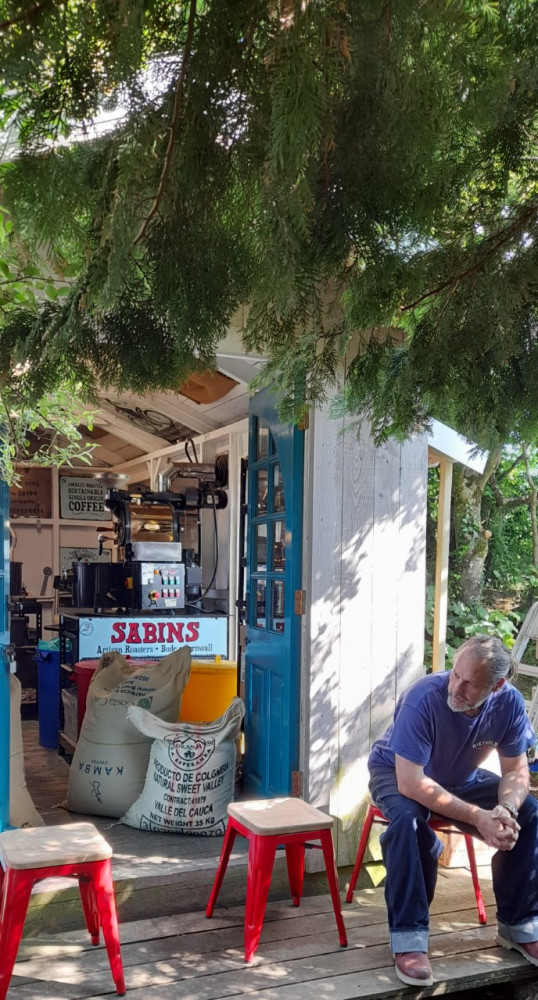
How did you come to work in coffee?
We are originally from Canterbury; Paul’s family had a few hotels, one of which we managed. After a couple of years, we opened our own in a run-down Georgian office block. It had a hole in its huge roof and guillotines for windows. No one else would touch it! However, it had a beautiful walled courtyard, and we needed the money, so we opened a cafe/coffee house.
Have you ever had a life-changing experience with the beverage?
Probably the first coffee we ever roasted. I emailed a producer in Hawaii and he sent me some Kona. We roasted it, drank loads and was so impressed! I was flying on the heady cocktail of our first successful roast and consumption of loads of coffee. Then stepped in front of a car! Fortunately, the driver braked, and all was well.
What would you be doing if you weren’t in coffee?
I can’t honestly see myself doing anything else, so that is a tough one. If pushed, I trained professionally as a Ballet Dancer. I think I may be a little old to squeeze on the Tutu, but I have taught sporadically. So perhaps teaching Ballet.

Is working in a space close to nature important to your coffee journey?
Without a doubt! It just more space both mentally and physically. I think it also allows for creativity. We all take inspiration from our surroundings, whether we realise it or not.
Are you reading or listening to anything that you’d like to share?
My 10-year-old son Noah and I are reading together the Chronicles of Darkness series set in pre-agricultural stone age Europe. They are a must-read! Quite brutal, but fascinating. Listening wise, again, this is a home ed thing, Neil Macgregor’s History of the world in 100 Objects.
Are there any personal values that flow into your approach to coffee?
Walk the line, be honest, straight forward and kind.
Tell us a bit about your town or city, or where you come from?
We are originally from Canterbury, and all of our extended family are still based there. We live in a little hamlet outside Bude. It’s famous for surfing and is a little more rugged than some bits of Cornwall. The beaches are epic, with stunning backdrops of amazing coastline.
What’s your favourite thing about living where you do?
Cornwall is laid back. The quality of life is great, it’s really creative and has a strong sense of community.
Where do you head when you have time / a day off (if we weren’t in a pandemic)?
Walk. We all have a favourite. We head over to Morwenstow and walk along the headland to Hawker’s Hut, built out of driftwood from shipwrecks by eccentric Victorian, Vicar Rev Hawker. He would sit with his pals Dickens and Tennyson smoking opium. It sits right on the edge of the cliff, and in bad weather is ominous and kind of foreboding. In the sunshine, it’s turquoise seas, and you can see for miles. It is perfect for a picnic before you walk down this sheer drop into a valley and the kids wade up the stream. Then it’s a pint in the Bush inn!
Do you have any local tips? Maybe there’s a hidden gem you’d like to share?
Go surfing or bodyboarding. Swim in Bude sea pool. Walk the southwest coastal path, which dips in and out of some beautiful places. A must-see is a 60-foot waterfall down a sheer cliff at Speke’s Mill; not a sandy beach but very dramatic and rugged.
Do you have a mantra that you live by?
Years ago, I listened to a podcast about two brothers. One caught the fish, and the other smoked the fish. They lived on a remote island off Scotland, off-grid, just doing what they were good at – content and happy with what the day would bring. My mantra is maybe just to be more present in the now, and not worrying too much about what’s around the corner.
We love the Sabins illustrations! Could you tell us a little more about these?
This was originally the girl on the bike with crazy hair (me, I am informed) influenced by a poster, I think, from a Swedish Bike magazine from the 80’s. The bike is a nod to our Espresso Trike days. Now, it’s a Centaur; half woman, half horse. We have a small herd of horses, which everyone rides, so it seems more fitting.
Are there any learnings or values that you’ve taken out of the past 12 months?
Anything is survivable. You can’t plan for everything. To be thankful to people who have made a real effort to keep buying coffee to support us, and to genuine offers of help.
What are you looking forward to for the rest of the year?
Building another unit next to the roastery. This should be fun as we all going to pull together and build it as a team.
How do you take your coffee?
I am fond of a flat white first thing, but for something super fruity/juicy, I will use the dripper and drink it black.
What’s your favourite origin and why?
Ethiopia, Ethiopia, Ethiopia. Every time we get samples, I am amazed by the diversity, crazy florals and complex fruitiness. And I turn to everyone and suggest we only roast Ethiopian coffee, to which I am told to shut up! BUT we have had two Colombia Cafe Granja La Esperanza this year that will definitely stick in my most memorable coffee list.
